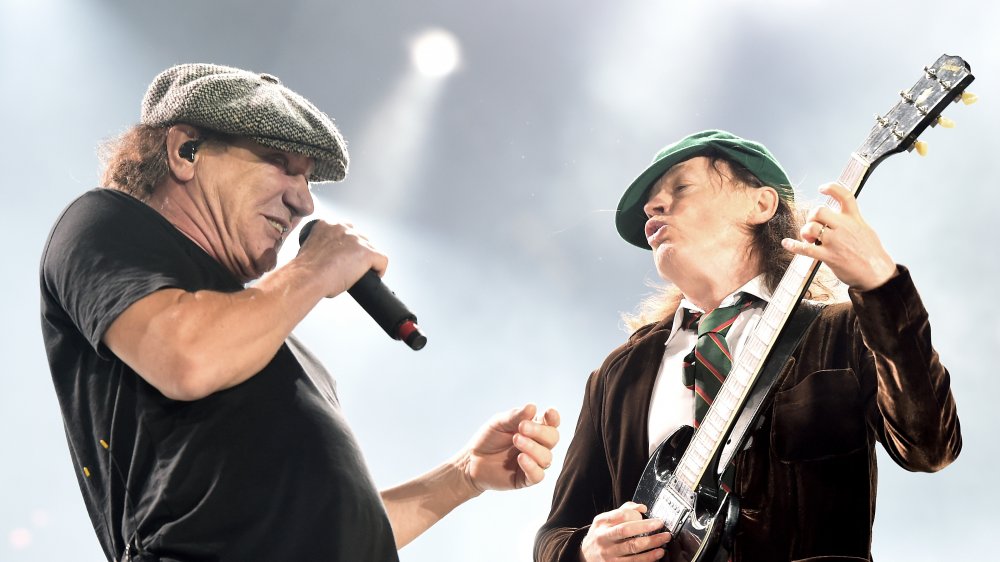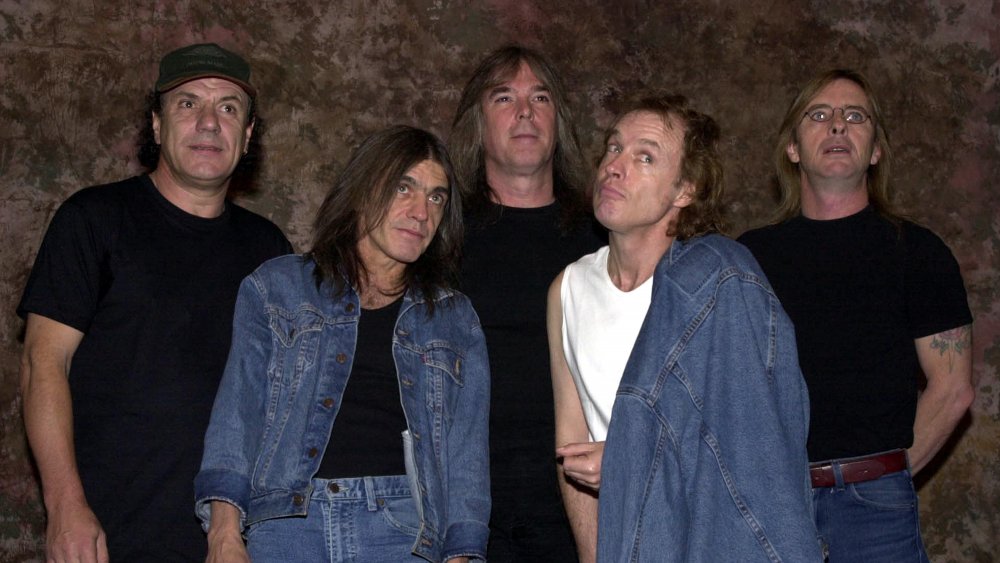The Real Meaning Behind AC/DC's Name
Prepare your cannons, giant bells, and your lead guitarist's schoolboy uniforms: AC/DC is in the house, and the house is about to rock. Since the 1970s, the Australian outfit has been doing their own, blues-rocky thing like a steadily advancing train fueled by awesome riffs. While even Encyclopedia Britannica might be unsure whether they're heavy metal or rock 'n' roll, their virtually unchanging, yet deceptively well-crafted sound has stood the test of time. The machine may have been fronted by singers ranging from Bon Scott and Brian Johnson to Axl Rose, but the sound has endured.
With Angus Young's horn signs and the band's copious "Hell's Bells" imagery, it's easy to believe that the biggest controversies regarding AC/DC might have been of the devil-worshiping variety. However, as Mark Beech's book, The Dictionary of Rock & Pop Names, tells us, that wasn't always the case. Back in the day, it seems that one of the most curious things about the band was actually ... their name. What does it really mean?
Electrifying in more than one way
AC/DC, as any electrician would be happy to tell you after a long sigh and a head shake, is a less than devilish name. In fact, it's the abbreviation of "Alternating Current/Direct Current," which means that the electrical device in question can use both types of power. Beech writes that, reportedly, AC/DC guitarists Angus and Malcolm Young spotted the letters on a household appliance — thought to be either a sewing machine or a vacuum cleaner — and filed them under "cool band names," with the idea that the term was the perfect summation of the band's energy.
Unbeknownst to the band, however, was the fact that "AC/DC" was also a slang term for bisexuality. According to Martin Huxley's book, AC/DC: The World's Heaviest Rock, this caused some pretty interesting misunderstandings during the group's early career. While they initially denied that their band name had any sexual undertones, they eventually just rolled with it. In fact, they even got a few extra gigs because of their name, seeing as they were booked to play at several "gay-themed events."

